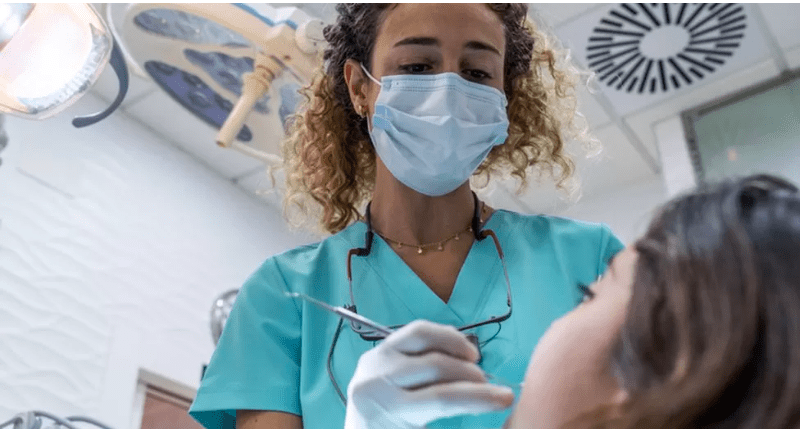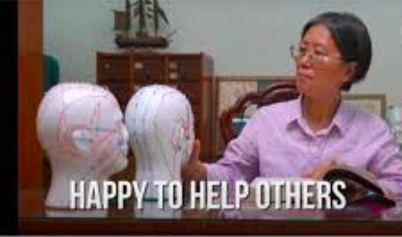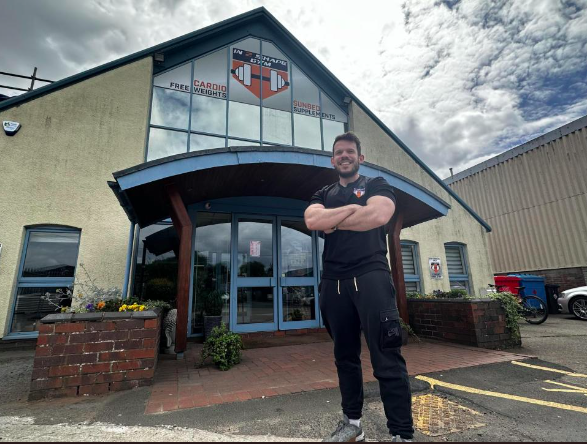Trending Stories
The Unraveling Reality of NHS Dentistry Access and its Harrowing Impact

UK Dental Crisis: The Unraveling Reality of NHS Dentistry Access and its Harrowing Impact
An epidemic of a different kind is sweeping through the United Kingdom – the dwindling accessibility to NHS dental services. This severe problem has led to desperate measures among the populace, including driving hundreds of miles for treatment, or even pulling their own teeth out. The situation, as deemed by a recent inquiry, is ‘totally unacceptable’.
The Growing Concern Over Dentistry Access in the UK
The crisis in dental health came to the spotlight following an extensive BBC investigation. The disturbing revelation showed that 9 out of 10 NHS dental practices were not accepting new adult patients.
The shortcomings have spread to such an extent that the government has been forced to launch a review. The government, despite investing a hefty £3bn annually into dentistry, is still not doing enough, according to the Health and Social Care Committee’s comprehensive report.
Even though recommendations for dental reforms were proposed over a decade and a half ago, they remain unimplemented. In stark contrast to the overall decline in NHS dental services across the UK, Scotland managed to maintain slightly better access for adults, with 18% of practices accepting new patients. However, the rest of the UK – Wales, England, and Northern Ireland – are languishing at 7%, 9% and 10% respectively.
The Reality of the Dental Crisis: A Personal Account
Danielle Watts, a resident of Bury St Edmunds, Suffolk, found herself trapped in a “dental desert” – a region bereft of NHS dental care. Unable to afford private treatment amounting to thousands of pounds, she was forced to remove 13 of her own teeth over several months. Watts’ life was significantly transformed after she set up a crowdfunding page and raised enough money to get dentures.
Today, she stands as a symbol of the impact of the ongoing dental crisis, shedding light on the plight faced by countless others across the country. She says, “I don’t have to hide anymore. To be able to talk to somebody face-on, to be able to smile at somebody, is something I haven’t done for several years.”
The Report Recommendations: A Path to Improvement?
The Committee’s report urged swift reforms, prioritizing accessible and patient-centric dental care, alongside the introduction of incentives for dentists who cater to new patients and those with greater dental needs.
It also stressed the need to reform the current dental contract. The existing system that pays dentists for batches of treatments rather than each item or procedure has been deemed unfit for purpose, creating disincentives for seeing new patients.
The government has responded, citing a 40% increase in dentistry training places and enhancements to dental therapists’ and hygienists’ scope of treatment. Furthermore, the Department of Health and Social Care has announced reforms to the NHS dental contract and increased funding for high-need patients. However, the question remains whether these measures will be enough and if they will arrive in time to mitigate the escalating crisis.
As the demand for dental care continues to outstrip the supply of available NHS dentists, thousands are left grappling with the disheartening reality of a system stretched to its limits. The need of the hour is to address this growing health crisis before more people are compelled to take drastic measures, like Danielle Watts, in the face of inadequate dental care.
A Pandemic Aggravated Crisis
The dental crisis has been further aggravated by the global pandemic. According to the British Dental Association, the workload backlog, exacerbated by Covid-19, will take years to clear. Dental practices, struggling to deliver on their NHS contractual commitments, find it difficult to fill vacancies, leading to a significant bottleneck in service delivery.
An Inefficient System
The current system, known as NHS “units of dental activity” (UDAs), compensates dentists for entire courses of treatments instead of individual procedures. This creates a disincentive for dentists to accept new patients, particularly those who require more extensive and time-consuming treatments.
For example, under the UDA system, a single filling treatment might attract the same fee as a more complex course including five fillings, a root treatment, and an extraction.
The report highlights that such a system is not fit for purpose and urgently needs to be reformed to encourage dentists to provide more NHS treatments.
The Long Road to Reform
While the Department of Health and Social Care has increased funding for high-need patients and implemented changes to the NHS dental contract, critics warn that these measures may be too little, too late. Many dentists have already left the NHS, making the challenge of improving accessibility even more daunting.
A Call to Action
The alarming decline of NHS dental services should be ringing alarm bells, warns the chairman of the cross-party committee which wrote the report. “Rarely has an inquiry been more necessary than this one,” he added, underscoring the urgency of the situation.
As the UK grapples with this escalating dental health crisis, the need for systemic reform and increased investment in dental healthcare becomes more pressing than ever. The future of NHS dental services hangs in the balance, and swift action is required to ensure that all citizens have access to the dental care they desperately need.
News source: BBC
Trending Stories
Sister Regina Liu: Empowering Health Through Acupuncture

Sister Regina Liu: Empowering Health Through Acupuncture
In the bustling world of healthcare, Sister Regina Liu stands out as a beacon of holistic healing. Her journey into the world of acupuncture is not only inspiring but also transformative for the countless individuals she has treated.
Through her dedication, Sister Regina has brought traditional Chinese medicine to the forefront, offering an alternative and complementary approach to modern medical practices.
The Journey of Sister Regina Liu
Sister Regina Liu’s path to becoming a renowned acupuncturist began with her deep-rooted interest in holistic health. Born into a family that valued traditional Chinese medicine, Sister Regina was exposed to the benefits of acupuncture from a young age. Her early fascination turned into a lifelong passion as she pursued formal education and training in the field.
Acupuncture: Bridging Ancient Wisdom and Modern Health
Acupuncture, a practice with origins in ancient China, involves inserting thin needles into specific points on the body to balance the flow of energy or “qi.” Sister Regina Liu has mastered this ancient art, using it to address a wide range of health issues.
From chronic pain to stress management, her expertise has provided relief to many who had exhausted conventional treatment options.
Impact on Community Health
Sister Regina’s impact extends beyond individual treatments. She has been instrumental in educating the community about the benefits of acupuncture, breaking down misconceptions, and making the practice more accessible.
Her workshops and seminars have enlightened many about the holistic approach to health, emphasizing the interconnectedness of body, mind, and spirit.
Success Stories and Testimonials
The success stories of Sister Regina’s patients are a testament to her skill and dedication. Many individuals who had lost hope found solace in her treatments.
For instance, Maria, a long-time sufferer of migraines, experienced significant relief after just a few sessions with Sister Regina. Her story is just one of many that highlight the transformative power of acupuncture under Sister Regina’s care.
Challenges and Triumphs
Like any journey, Sister Regina’s path was not without challenges. Integrating acupuncture into mainstream healthcare faced resistance initially.
However, her perseverance and the undeniable results of her treatments gradually won over skeptics. Today, Sister Regina is not only respected in the field of acupuncture but also in the broader medical community.
The Science Behind Acupuncture
While acupuncture is rooted in ancient practices, modern science has begun to unravel the mechanisms behind its effectiveness. Studies have shown that acupuncture can stimulate the release of endorphins, the body’s natural painkillers, and improve blood circulation.
These scientific validations have further cemented acupuncture’s place in contemporary healthcare, thanks in part to advocates like Sister Regina Liu.
Acupuncture in Modern Healthcare
Sister Regina’s work exemplifies how traditional practices can complement modern medicine. Hospitals and clinics increasingly incorporate acupuncture into their treatment plans, recognizing its benefits in pain management, mental health, and overall well-being. This integration signifies a broader acceptance and understanding of holistic health practices.
Future Vision
Looking ahead, Sister Regina Liu envisions a future where acupuncture and traditional Chinese medicine are fully integrated into the global healthcare system. She continues to advocate for research, education, and policy changes that support the inclusion of holistic practices in mainstream medicine.
How to Get Started with Acupuncture
For those new to acupuncture, Sister Regina offers practical advice on getting started. She recommends finding a certified acupuncturist, understanding the treatment process, and maintaining an open mind. Her guidance helps demystify acupuncture, making it more approachable for newcomers.
Conclusion
Sister Regina Liu’s journey in empowering health through acupuncture is a remarkable tale of dedication, resilience, and success. Her contributions have not only alleviated individual suffering but also enriched the broader understanding of holistic health. As acupuncture continues to gain recognition, Sister Regina’s legacy will undoubtedly inspire future generations of healers.
FAQs
1. What conditions can acupuncture treat?
Acupuncture can address various conditions, including chronic pain, migraines, stress, anxiety, digestive issues, and more. It is also used to support overall wellness and balance.
2. Is acupuncture safe?
Yes, when performed by a certified and experienced acupuncturist, acupuncture is safe. It involves using sterile, single-use needles and adhering to proper hygiene practices.
3. How many sessions are needed to see results?
The number of sessions varies depending on the condition and individual response. Some may experience relief after one session, while others may need multiple treatments.
4. Does acupuncture hurt?
Acupuncture needles are very thin, and most people feel minimal to no discomfort. Some may feel a slight tingling or warmth at the needle site.
5. How do I find a qualified acupuncturist?
Look for acupuncturists who are certified by recognized professional organizations and have positive patient reviews. Personal recommendations and consultations can also help in making an informed choice.
References
Trending Stories
In 2 Shape Gym Unveils Major Expansion in Stourport
Trending Stories
9 Reasons Why In-Person Friendships Are Irreplaceable
-

 Trending Stories1 year ago
Trending Stories1 year agoCDC: 1 in 4 Americans Still COVID-Free by End of 2022
-

 Health5 years ago
Health5 years agoMeghan Trainor Shares Motivational New Song ‘Blink’
-

 Health2 years ago
Health2 years agoHow Long Does Monkey Pox Last Before It Surfaces in the Body?
-

 Health2 years ago
Health2 years agoWhat Causes Swollen Body? Understanding Edema and its Triggers
-

 Health3 years ago
Health3 years agoNutrition and the Importance of a Fitness Program – 3 Things to Know
-

 Health3 years ago
Health3 years ago5 Weird Reasons Why Pimples Disappear After Marriage
-

 Health3 months ago
Health3 months agoHow Do Pawpaw Seeds Support Cardiovascular Health?
-

 Health2 years ago
Health2 years agoHealth Benefits Of Pawpaw Seed? 7 Things To Know







